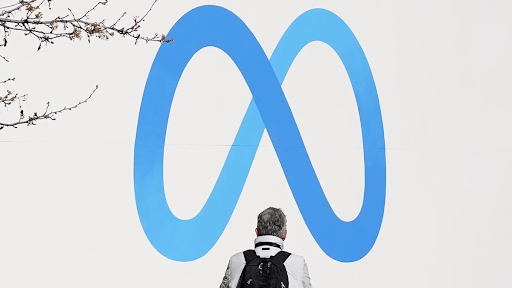



The Meta case underscores the need to update India's competition law for data-driven monopolies. Current laws focus on price-based dominance, overlooking data aggregation. India should integrate competition and data protection laws, adopt global best practices, and introduce measures like interoperability to ensure fair competition and curb anti-competitive practices.

Copyright infringement not intended
Picture Courtesy: THEHINDU
The Meta case highlights the need for a forward-looking approach to competition law in India.
The Competition Commission of India (CCI) issued an order in November 2024, imposing a fine of ₹213.14 crore on Meta.
The CCI also mandated behavioral remedies, including a five-year ban on sharing user data collected on WhatsApp with other Meta platforms like Facebook and Instagram for advertising purposes.
Meta challenged this decision at the National Company Law Appellate Tribunal (NCLAT), which granted a stay on the data-sharing ban and penalty in January 2025, but required Meta to deposit 50% of the fine.
In the 21st century, data has become the backbone of the digital economy. Unlike traditional resources like oil, data can be reused indefinitely.
Platforms like Meta collect massive amounts of user data, refine algorithms, and offer hyper-targeted advertising to create a feedback loop where more users generate more data. For example, by forcing users to share their WhatsApp data with Facebook and Instagram, Meta gained a competitive edge in digital advertising.
Tech giants like Google have also faced scrutiny. In 2022, the CCI fined Google ₹1,337.76 crore for abusing its dominance in markets like Android operating systems and app stores. Google mandated the pre-installation of its apps on Android devices, stifling competition. The NCLAT upheld this penalty in 2023.
Globally, Meta and Google face antitrust litigation. In the U.S., Meta is under investigation for its acquisitions of Instagram and WhatsApp, charged with creating barriers for competitors. Google was found guilty of violating the Sherman Act in 2024 due to exclusive agreements in search and advertising markets.
In Europe, Meta faced action for combining user data without consent, violating General Data Protection Regulation (GDPR) and EU competition laws.
These cases indicate a global trend of regulators addressing data exploitation, and anti-competitive practices.
|
Past cases indicate the need for comprehensive regulatory frameworks. For example, AT&T was forced to divest 22 operating companies in the U.S., dismantling its monopoly. Microsoft faced surveillance during antitrust proceedings, to ensure Application Programming Interface (API) access for third-party developers and greater flexibility for PC manufacturers. |
India’s Competition Act 2002, lacks detailed provisions to address data-centric monopolies. Traditional frameworks focus on price-based dominance, but digital markets witness dominance through data aggregation - To address this gap, the Act must redefine concepts like "market power" and "dominant position" to reflect data-driven dynamics.
The Digital Personal Data Protection Act, 2023, complements competition law by regulating data collection and usage. However, the absence of coordination between the CCI and the Data Protection Board of India limits effectiveness.
India could adopt the EU’s model, by integrating competition law with the Digital Markets Act (DMA) and GDPR, which could create a comprehensive framework.
Policymakers should combine competition law with data protection regulations to ensure that rules promote fair competition without suppressing innovation.
India must amend its Competition Act to include parameters like “data monopolization” and introduce measures such as interoperability and data-sharing agreements.
India should align its regulatory frameworks with global best practices, to address the complexities of data-driven monopolies, and ensure fair competition and safeguarding consumer interests.
Source:
|
PRACTICE QUESTION Q.Examine the role of data as a critical resource in the digital economy. How does its misuse by tech giants like Meta and Google pose challenges for fair competition? 150 words |








© 2025 iasgyan. All right reserved